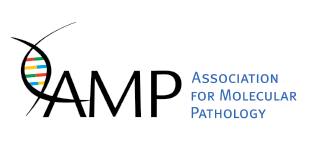Thank you for your interest in CCO content. As a guest, please complete the following information fields. These data help ensure our continued delivery of impactful education.
Become a member (or login)? Member benefits include accreditation certificates, downloadable slides, and decision support tools.

Associate Professor
Medical Director, Thoracic Medical Oncology
University of California, San Francisco
San Francisco, California
Matthew Gubens, MD, MS: consultant/advisor/speaker: AstraZeneca, Bristol-Myers Squibb, Cardinal Health, Genentech/Roche, Genzyme/Sanofi, Guardant, iTeos, Surface; researcher (paid to institution): Amgen, Celgene, Johnson & Johnson, Merck, Novartis, OncoMed, Trizell.

Professor
Direct Division of Genomic Diagnostics and BioInformatics
University of Alabama at Birmingham
Birmingham, Alabama
Craig Mackinnon, MD, PhD, has no relevant financial relationships to disclose.
Key Takeaways
On August 11, 2022, the FDA granted accelerated approval to trastuzumab deruxtecan, an antibody–drug conjugate, for the treatment of adult patients who have unresectable or metastatic non-small-cell lung cancer (NSCLC) harboring activating HER2 mutations and who have received a prior systemic therapy. This approval was based on the results of the phase II DESTINY-Lung02 trial. So, at present, there are 9 genetic biomarkers with FDA-approved indications as targeted therapies for patients with NSCLC: EGFR, ALK, ROS1, BRAF V600E, NTRK, RET, MET exon 14 skipping, KRAS G12C, and now HER2 mutations. These are exciting times for healthcare professionals who treat patients with lung cancer, and news about recent approvals and other emerging biomarkers should motivate us to ensure that we do the work of finding these actionable mutations in our patients’ biopsies and resected NSCLC tissues. Of importance, and based on available evidence of efficacy, previously treated patients with advanced NSCLC harboring HER2 exon 20 insertion mutations now can receive targeted therapy with trastuzumab deruxtecan.
Incidence and Importance of HER2 Alterations in Advanced NSCLC
Although the determination of HER2 protein expression and HER2 gene mutation status is currently part of reflex testing for most patients with breast cancer, HER2 is a new biomarker in lung cancer. HER2 alterations are somewhat complex because they include protein overexpression, gene mutations, and gene amplifications. Therefore, it is important to understand what is being evaluated using the reflex testing system. With the recent FDA approval of trastuzumab deruxtecan, HER2 mutations, which are often HER2 exon 20 insertion mutations, are of the most importance in NSCLC. HER2 exon 20 insertion mutations are similar to EGFR exon 20 insertion mutations. Comprehensive molecular profiling via next-generation sequencing is used to identify activating HER2 mutations, again typically occurring as exon 20 insertions in the HER2 gene or less commonly as single nucleotide variants involving exons 19-21 of the HER2 kinase domain.
Approximately 3% of all patients with advanced nonsquamous NSCLC have disease harboring HER2 exon 20 insertion mutations. HER2 exon 20 insertion mutations are more commonly observed in younger patients with advanced NSCLC (median age: 62 years; range: 37-73 years). Among those patients with NSCLC harboring HER2 exon 20 insertion mutations, the majority (71%) do not have any prior smoking history, similar to EGFR mutations in NSCLC. In contrast to HER2 mutations in NSCLC, HER2 alterations in breast, gastric, gastroesophageal junction, and colon cancers include amplification of wild-type HER2 with protein overexpression, underscoring the significant variation in the type and frequency of HER2 alterations.
Targeting HER2 Exon 20 Insertion Mutations in NSCLC
Several ongoing studies are investigating different classes of targeted therapies for patients with NSCLC harboring HER2 exon 20 insertion mutations (NCT02675829, NCT05378763). For example, poziotinib and tarloxotinib are tyrosine kinase inhibitors with promising activity in this setting. To date, however, the most compelling data have been with the antibody–drug conjugates trastuzumab deruxtecan and trastuzumab emtansine. In the multicenter, multicohort, randomized phase II DESTINY-Lung02 dose-optimization trial of trastuzumab deruxtecan for patients with HER2-mutated metastatic NSCLC who had previously received 1 line of systemic therapy, the objective response rate by blinded independent review in the group of patients who received a dose of 5.4 mg/kg (IV) once every 3 weeks was 58%, and the median duration of response was 8.7 months. The most frequently observed adverse events included gastrointestinal toxicities, myelosuppression, and increased aminotransferases. Drug-related interstitial lung disease was noted in 6% of patients—lower than the rate seen at the 6.4-mg/kg dose. Based on these results, trastuzumab deruxtecan at a dose of 5.4 mg/kg (IV) once every 3 weeks received FDA approval for previously treated patients with unresectable or metastatic NSCLC harboring HER2 mutations. This is truly exciting news.
Conclusions
Because of the availability of highly effective targeted therapies, testing for alterations at the very least in EGFR, ALK, ROS1, BRAF V600E, NTRK, MET exon 14, RET, and now HER2, as well as PD-L1 at diagnosis, should be mandatory for all patients with advanced nonsquamous NSCLC. For all patients who are newly diagnosed with advanced NSCLC, it is highly recommended that broad molecular testing be performed. This is the optimal approach to efficiently use the available tissue sample to select the most effective treatment for patients. At present, taking a “piecemeal approach” is no longer ideal. Efficient and effective collaboration among the medical oncologists, pathologists, pulmonologists, and all other stakeholders in the multidisciplinary care team is critical and highly encouraged to decide on the best treatment strategy for each patient.
Your Thoughts?
What are the challenges you experience in your practice when it comes to requesting comprehensive next-generation sequencing–based testing for your patients with NSCLC? Answer the polling question and join the conversation in the discussion box below.

Contact Clinical Care Options
For customer support please email: customersupport@cealliance.com
Mailing Address
Clinical Care Options, LLC
12001 Sunrise Valley Drive
Suite 300
Reston, VA 20191

You are now leaving the CCO site. The new destination site may have different terms of use and privacy policy.